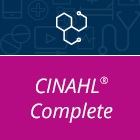Nursing & Health Sciences Research Journal
Abstract
Background: Methicillin-resistant Staphylococcus aureus (MRSA) nasal screen identifies the presence of MRSA nasal colonization, which can be used as a valuable antimicrobial stewardship tool to de-escalate empiric vancomycin therapy in patients with pneumonia. Current practices at a Florida hospital include using respiratory culture and MRSA nasal screening results to assist in treating MRSA pneumonia infections. This study aimed to evaluate the total duration of vancomycin therapy in patients with suspected MRSA respiratory tract infections. Methods: This was a single-center, retrospective chart review conducted at a tertiary medical center. Adult patients were assigned to either the respiratory culture-directed group or the MRSA nasal screening-directed group. The primary outcome was the duration of vancomycin therapy, in hours, in patients who were started on vancomycin for suspected pneumonia. Secondary outcomes included new onset acute kidney injury, length of stay, 30-day in-hospital mortality, number of vancomycin levels obtained, cost-avoidance analysis, and duration of mupirocin therapy before MRSA nasal screening. Results: Thirty-four patients were evaluated in the culture-directed group and 56 in the MRSA nasal screen-directed group (N = 90). The MRSA nasal screen-directed cohort had a statistically significant reduction in the duration of vancomycin therapy compared to the culture-directed group (24 vs. 94 hours; p < .00001). Discussion: The empiric vancomycin therapy duration was significantly lower in the MRSA nasal screen cohort compared to the respiratory culture cohort. Hospitals could have a beneficial, cost-saving impact by utilizing MRSA nasal screening for patients with a lower respiratory tract infection.
Recommended Citation
Grusauskas, V. E., Wasielewski, A., & Boyar, K. (2023). Comparison of Microbial Respiratory Cultures versus MRSA Nasal Screen to Guide Vancomycin De-escalation in Patients Hospitalized for Bacterial Pneumonia. Nursing & Health Sciences Research Journal, 6(1), 61-69. https://doi.org/10.55481/2578-3750.1157
Creative Commons License

This work is licensed under a Creative Commons Attribution-NonCommercial-No Derivative Works 4.0 International License.


